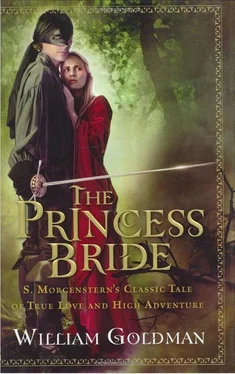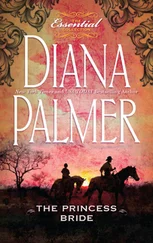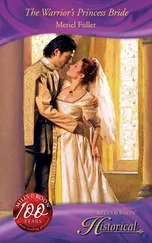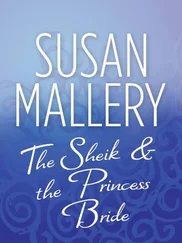And that's when I began to realize the problem.
Not that the description wasn't there. It was, and again pretty much as I remembered it. But before you got to it, there were maybe sixty pages of text dealing with Prince Humperdinck's ancestry and how his family got control of Florin and this wedding and that child begatting this one over here who then married somebody else, and then I skipped to the third chapter, The Courtship, and that was all about the history of Guilder and how that country reached its place in the world. The more I flipped on, the more I knew: Morgenstern wasn't writing any children's book; he was writing a kind of satiric history of his country and the decline of the monarchy in Western civilization.
But my father only read me the action stuff, the good parts. He never bothered with the serious side at all.
About two in the morning I called Hiram in Martha's Vineyard. Hiram Haydn's been my editor for a dozen years, ever since Soldier in the Rain, and we've been through a lot together, but never any phone calls at two in the morning. To this day I know he doesn't understand why I couldn't wait till maybe breakfast. "You're sure you're all right, Bill," he kept saying.
"Hey, Hiram," I began after about six rings. "Listen, you guys published a book just after World War I. Do you think it might be a good idea for me to abridge it and we'd republish it now?"
"You're sure you're all right, Bill?"
"Fine, absolutely, and see, I'd just use the good parts. I'd kind of bridge where there were skips in the narrative and leave the good parts alone. What do you think?"
"Bill, it's two in the morning up here. Are you still in California?"
I acted like I was all shocked and surprised. So he wouldn't think I was a nut. "I'm sorry, Hiram. My God, what an idiot; it's only 11:00 in Beverly Hills. Do you think you could ask Mr. Jovanovich, though?"
"You mean now?"
"Tomorrow or the next day, no big deal."
"I'll ask him anything, only I'm not quite sure I'm getting an accurate reading on exactly what you want. You're sure you're all right, Bill?"
"I'll be in New York tomorrow. Call you then about the specifics, okay?"
"Could you make it a little earlier in the business day, Bill?"
I laughed and we hung up and I called Zig in California. Evarts Ziegler has been my movie agent for maybe eight years. He did the Butch Cassidy deal for me, and I woke him up too. "Hey, Zig, could you get me a postponement on the Stepford Wives? There's this other thing that's come up."
"You're contracted to start now; how long a postponement?"
"I can't say for sure; I've never done an abridgement before. Just tell me what you think they'd do?"
"I think if it's a long postponement they'd threaten to sue and you'd end up losing the job."
It came out pretty much as he said; they threatened to sue and I almost lost the job and some money and didn't make any friends in "the industry," as those of us in show biz call movies.
But the abridgement got done, and you hold it in your hands. The "good parts" version.
WHY DID I go through all that?
Helen pressured me greatly to think about an answer. She felt it was important, not that she know necessarily, but that I know. "Because you acted crackers, Willy boy," she said. "You had me truly scared."
So why?
I never was worth beans at self-scrutiny. Everything I write is impulse. This feels right, that sounds wrong—like that. I can't analyze—not my own actions anyway.
I know I don't expect this to change anybody else's life the way it altered mine.
But take the title words—"true love and high adventure"—I believed in that once. I thought my life was going to follow that path. Prayed that it would. Obviously it didn't, but I don't think there's high adventure left anymore. Nobody takes out a sword nowadays and cries, "Hello. My name is Inigo Montoya. You killed my father; prepare to die!"
And true love you can forget about too. I don't know if I love anything truly anymore beyond the porterhouse at Peter Luger's and the cheese enchilada at El Parador's. (Sorry about that, Helen.)
Anyway, here's the "good parts" version. S. Morgenstern wrote it. And my father read it to me. And now I give it to you. What you do with it will be of more than passing interest to us all.
New York City
December, 1972
The Bride
THE YEAR that Buttercup was born, the most beautiful woman in the world was a French scullery maid named Annette. Annette worked in Paris for the Duke and Duchess de Guiche, and it did not escape the Duke's notice that someone extraordinary was polishing the pewter. The Duke's notice did not escape the notice of the Duchess either, who was not very beautiful and not very rich, but plenty smart. The Duchess set about studying Annette and shortly found her adversary's tragic flaw.
Chocolate.
Armed now, the Duchess set to work. The Palace de Guiche turned into a candy castle. Everywhere you looked, bonbons. There were piles of chocolate-covered mints in the drawing rooms, baskets of chocolate-covered nougats in the parlors.
Annette never had a chance. Inside a season, she went from delicate to whopping, and the Duke never glanced in her direction without sad bewilderment clouding his eyes. (Annette, it might be noted, seemed only cheerier throughout her enlargement. She eventually married the pastry chef and they both ate a lot until old age claimed them. Things, it might also be noted, did not fare so cheerily for the Duchess. The Duke, for reasons passing understanding, next became smitten with his very own mother-in-law, which caused the Duchess ulcers, only they didn't have ulcers yet. More precisely, ulcers existed, people had them, but they weren't called "ulcers." The medical profession at that time called them "stomach pains" and felt the best cure was coffee dolloped with brandy twice a day until the pains subsided. The Duchess took her mixture faithfully, watching through the years as her husband and her mother blew kisses at each other behind her back. Not surprisingly, the Duchess's grumpiness became legendary, as Voltaire has so ably chronicled. Except this was before Voltaire.)
The year Buttercup turned ten, the most beautiful woman lived in Bengal, the daughter of a successful tea merchant. This girl's name was Aluthra, and her skin was of a dusky perfection unseen in India for eighty years. (There have only been eleven perfect complexions in all of India since accurate accounting began.) Aluthra was nineteen the year the pox plague hit Bengal. The girl survived, even if her skin did not.
When Buttercup was fifteen, Adela Terrell, of Sussex on the Thames, was easily the most beautiful creature. Adela was twenty, and so far did she outdistance the world that it seemed certain she would be the most beautiful for many, many years. But then one day, one of her suitors (she had 104 of them) exclaimed that without question Adela must be the most ideal item yet spawned. Adela, flattered, began to ponder on the truth of the statement. That night, alone in her room, she examined herself pore by pore in her mirror. (This was after mirrors.) It took her until close to dawn to finish her inspection, but by that time it was clear to her that the young man had been quite correct in his assessment: she was, through no real faults of her own, perfect.
As she strolled through the family rose gardens watching the sun rise, she felt happier than she had ever been. "Not only am I perfect," she said to herself, "I am probably the first perfect person in the whole long history of the universe. Not a part of me could stand improving, how lucky I am to be perfect and rich and sought after and sensitive and young and..."
Читать дальше












